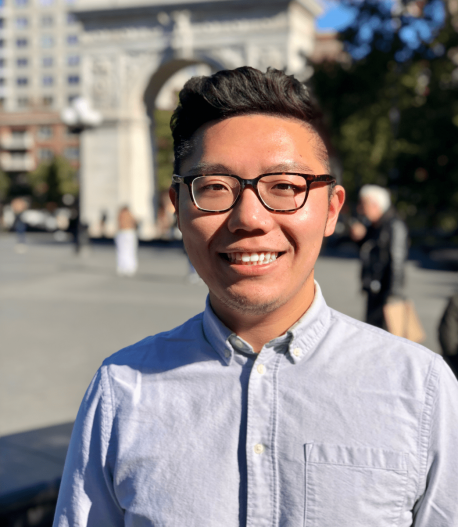EAP Congratulates Fellowship Recipients for 2021-2022

Highlighting the new Diverse Knowledge East Asia Fellowship
EAP is proud to announce the 2021-2022 Fellowship Recipients which support graduate and undergraduate student research. It was a competitive year and twelve fellowships were awarded.
This year we’re especially pleased to announce the first recipient of the Diverse Knowledge East Asia Fellowship, Zifeng Liu, PhD student in Africana Studies.
Zifung Liu writes: This dissertation is the first and only study of Black left feminists’ efforts to enlist Afro-Chinese political cooperation in a global struggle against overlapping forms of structural domination, including racism, sexism, classism, capitalism, and imperialism. It contributes to Africana studies, East Asian studies, and transnational feminism by building on a growing body of scholarship on Afro-Asian revolutionary connections.
We congratulate him and all the rest of the recipients and look forward to their exciting contributions and scholarship.
Graduate Area Studies Fellowships
Zifeng Liu, Africana Studies and Research Center, Diverse Knowledge East Asia
Liu will explore the interactions of Black leftist feminists with Chinese individuals and organizations from 1949 through 1978.
CV Star Fellowships
- Li Guan, Human Development: Guan will use this semester fellowship to examine cultural influences on Planning Fallacy.
- Hyuk-soo Kwon, Economics: Kwon’s study will evaluate the two most widely-used policies to promote electric vehicle (EV) industries - subsidy and tradable credit system - in the context of the Chinese EV market. ·
- Yexin Qu, Linguistics: Qu will use this fellowship to examine the Mandarin Rhyme System with Chinese, Korean and Japanese Sources.
- Yiying Xiong, Government: Xiong’s project will examine the strategies of China’s economic coercion and sheds light on the debates around how democratic countries could more effectively respond to such manipulation of economic dependence.
This year's Hu Shih Fellowship goes to Yunfei Du, Asian Studies. Using this field work fellowship for archival research with organizations in several cities in China, Du’s project will concentrate on contemporary migrant workers’ culture and literature in mainland China.
This year's RJ Smith Fellowship goes to Meita Estiningsih, History of Art and Visual Studies. Estiningsih will examine the legacy of the Japanese occupation (1942-1945) on the development of Indonesian national cinema, and narrate the historiography of the Japanese occupation from the lens of visual culture, which is still overlooked by many scholars.
The Lee Teng-hui Fellowship goes this year to Kevin Kwong, Linguistics. Kwong will conduct field research to further investigate Cantonese di-transitives as a key to several major syntactic puzzles in the language.
East Asian Language Study Grants
Three undergraduates will use their language grants to help them complete their thesis projects.Wesley Kang, History, Undergraduate will study Mandarin at the summer Princeton in Beijing program. David Sheng, History, Undergraduate will use the award to advance his Japanese in order to carry out archival research for his senior thesis on 19th-century Japanese travelogues of China. Anthony Sheehi, Computer Science/Asian Studies will study Japanese at the Kyoto Consortium for Japanese Studies program in the fall. He is a first generation, Latinx, LGBTQ undergrad who will be studying in Osaka, Japan.
Graduate student Eric Lee, History will study Japanese at the summer Princeton in Ishikawa program as part of completing his thesis research.
